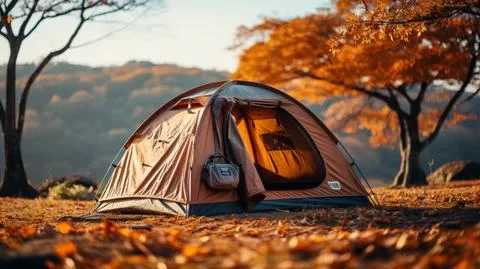Learn about essential fire regulations for US campgrounds, including safety tips and rules to prevent wildfires. Prepare your trip with expert advice and reliable gear from Pine Cliff Resort.

- Importance of Fire Regulations for US Campgrounds
- Key Fire Safety Rules and Guidelines
- Regional Variations in Fire Regulations Across the US
- Real-World Examples Highlighting Fire Safety
- How Pine Cliff Resort Supports Safe Camping Practices
Importance of Fire Regulations for US Campgrounds
Fire regulations for US campgrounds are crucial components of outdoor safety and environmental preservation. Campfires have long been a central part of the camping experience, providing warmth, cooking capabilities, and social ambiance. However, the risk of uncontrolled fires in natural settings is significant, especially in dry seasons or areas prone to wildfires.
Strict fire regulations aim to balance campers' enjoyment with protecting forests, wildlife, and surrounding communities. These regulations help minimize human-caused wildfire incidents, which have become increasingly frequent and devastating in recent years across the United States.
Understanding and adhering to these rules is not just about compliance but about respecting nature and safeguarding the environment for future generations of outdoor enthusiasts. Campers who prioritize fire safety contribute to healthier forests and safer recreational spaces.
Environmental Impact and Responsibility
Beyond personal safety, fire regulations reflect a broader responsibility to ecosystems. Wildfires can decimate habitats, harm wildlife populations, and contribute to soil erosion and water pollution. By following fire regulations, campers reduce their environmental footprint and play a direct role in conservation efforts.
Key Fire Safety Rules and Guidelines
Fire regulations for US campgrounds often include detailed rules designed to prevent accidents and ensure controlled, safe campfire use. Below are some of the fundamental guidelines every camper should know:
1. Fire Permit Requirements
Many campgrounds require a fire permit before lighting any fire. These permits may be obtained on-site or online and ensure that fire use is monitored and regulated. Some areas suspend fire permits during extreme fire danger periods.
2. Designated Fire Rings and Pits
Campfires must be built only within designated fire rings or pits provided by the campground. These structures help contain the fire and reduce the chance of it spreading to surrounding vegetation.
3. Fuel Restrictions
Using only approved firewood or natural materials found onsite is often mandatory. Transporting firewood across regions can introduce invasive pests harmful to local ecosystems, which many campgrounds actively prohibit.
4. Fire Size Limits and Supervision
Campfires must be kept at a manageable size and never left unattended. Campers are advised to keep water, shovels, or dirt nearby to quickly extinguish flames if needed.
5. Complete Fire Extinguishment
Before leaving the campsite or going to sleep, all campfires must be fully extinguished. This means dousing with water, stirring ashes, and ensuring no heat or embers remain. Proper extinguishing prevents flare-ups and accidental wildfires.
Regional Variations in Fire Regulations Across the US
Fire regulations for US campgrounds are not uniform and vary depending on geographic location, climate, and fire risk levels. Understanding these regional differences is essential for responsible camping.
1. Western United States
The Western states, including California, Oregon, and Colorado, frequently experience dry conditions and heightened wildfire risks. Fire bans are common during summer and fall, sometimes prohibiting all open flames, including campfires and charcoal grills. Campers in these areas must stay updated on local fire restrictions through park services or ranger stations.
2. Southeastern United States
Areas like Florida and Georgia may have more lenient fire regulations due to higher humidity but still enforce rules about fire containment and use of designated fire rings. Seasonal weather changes can influence temporary fire restrictions.
3. Northern and Midwest Regions
In states such as Minnesota and Michigan, fire regulations may focus on preserving wetlands and forests. During peak dry spells, campfire permits and fire bans are often implemented to protect natural resources.
Real-World Examples Highlighting Fire Safety
In 2020, the devastating wildfires across California emphasized the importance of strict fire regulations in campgrounds. Several fires were linked to unattended or improperly managed campfires, leading to millions of acres burned and significant property loss. This tragedy led to stricter enforcement of fire rules and increased public awareness.
On a positive note, many campgrounds that enforce fire regulations have seen a reduction in wildfire incidents. For example, Yellowstone National Park has successfully minimized fire-related accidents by educating visitors on fire safety and requiring fire permits, demonstrating how regulation combined with awareness can protect treasured natural sites.
Lessons from Experienced Campers
Seasoned campers often share that adhering to fire regulations not only prevents disasters but also enhances the camping experience by reducing anxiety about safety. One camper from Montana recalls always carrying a portable fire extinguisher and checking the local fire danger level before lighting any fire, advice that saved a trip from potential disaster during a sudden wind change.
How Pine Cliff Resort Supports Safe Camping Practices
For campers committed to following fire regulations for US campgrounds, Pine Cliff Resort offers specialized gear designed for safety and compliance. Their range includes durable fireproof gloves, portable fire extinguishers, and approved campfire cooking equipment.
Beyond products, Pine Cliff Resort provides expert advice tailored to various camping environments and fire regulations, helping you prepare for your trip responsibly. Whether you are planning a weekend getaway or an extended expedition, their support can ensure you meet local fire safety standards with confidence.
Choosing Pine Cliff Resort means equipping yourself with trusted tools and knowledge, ultimately protecting both your camping experience and the natural landscapes you cherish.
Fall Lake Campground
Fall Lk Rd, Ely, MN 55731, USA
Visit Location PageMemorial Mesa 1
Los Angeles County, CA 92821, USA
Visit Location Page